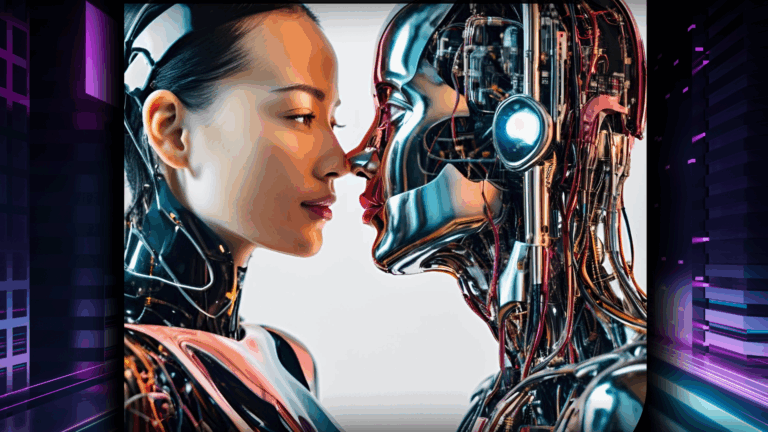Beyond the Script: How AI Avatars with Memory Make Training More Human
If your corporate training feels robotic or repetitive, it’s probably because it is. Most eLearning experiences rely on rigid scripts that never adapt, no matter how many times a learner engages with them. The result? Predictable conversations, low engagement, and limited retention.
What if your training partner could remember who you are, how you felt last time, and what you still need to work on? That’s the promise of AI avatars with persistent emotional memory, a new generation of learning companions that make training feel more human, more adaptive, and more effective.
The limits of scripted training
Traditional training systems excel at delivering information but struggle to build genuine skill. Scripted eLearning flows can’t account for the subtleties of personality, tone, or emotional context. Every learner receives the same prompts, responses, and outcomes.
According to Frontiers in Computer Science, VR-based avatar simulations outperform static modules precisely because they replicate real-world variation and emotional context. When learners engage with responsive avatars rather than fixed scripts, they report significantly higher engagement and retention.
This adaptability is what makes learning “stick.” Humans learn best through emotionally charged experiences, moments of feedback, reflection, and relational continuity, not through predictable multiple-choice exchanges.
From memory to mastery: how persistent AI changes everything
Taika, Virtual Dawn’s emotionally intelligent AI, goes far beyond one-off interactions. Its persistent memory enables the system to recall previous sessions, emotional cues, and the learner’s relational history, just as a human mentor would.
A recent study in the Contemporary Educational Engineering Journal found that AI systems using adaptive memory frameworks improved long-term knowledge retention and confidence by providing contextual feedback based on prior performance. This means learners aren’t starting from zero each time they train; they’re building on their own behavioural history.
For HR and L&D leaders, this evolution turns AI from a static tool into a living coach, one that learns, grows, and refines its feedback as your workforce does.
Emotionally aware avatars: the human layer in virtual reality
Long-term memory is powerful, but emotional intelligence is what makes it human. In VR environments, emotion-aware avatars can recognise stress, hesitation, or confidence in a learner’s tone or movement, and adjust accordingly.
A 2025 Springer study on AI avatars found that when virtual agents dynamically adapted both speech and behaviour, learners experienced higher emotional connection and lower cognitive load, two critical factors for maintaining engagement during soft-skills development.
Taika combines these capabilities in practice. Its adaptive persona engine uses persistent emotional memory to interpret tone, recall context, and evolve across sessions. Whether it’s a sales negotiation, leadership review, or conflict-resolution role-play, Taika provides continuity by remembering what happened before and responding accordingly.
Why this matters for HR and Education leaders
Human-centred AI isn’t about replacing trainers; it’s about scaling empathy, memory, and adaptability across your organisation.
- Personalised growth: Each learner’s path evolves with every session, creating a bespoke learning experience that mirrors natural human coaching.
- Retention and transfer: Learners remember because the AI remembers – contextual continuity reinforces knowledge through emotional connection.
- Scalability: What once required human facilitation is now available globally, on demand, and across VR, PC, and mobile platforms.
From static content to living conversations
The future of corporate and institutional training lies in relationships, not repetition. Training must evolve from scripted Q&A to continuous dialogue, a living exchange that adapts to each learner’s progress and personality.
Taika represents that shift: from static scripts to responsive, emotionally intelligent mentorship. By combining persistent memory, real-time sentiment analysis, and lifelike avatars, Taika transforms training into an experience that truly learns with you.
Applied across real-world services where memory saves lives
The future of corporate and institutional training lies in relationships, not repetition. Training must evolve from scripted Q&A to continuous dialogue, a living exchange that adapts to each learner’s progress and personality.
This evolution isn’t only relevant for business or soft-skills training. In high-stakes service industries such as firefighting, emergency response, aviation rescue, and medical intervention, memory is literally a matter of life and death.
Research on immersive VR training for firefighters shows that when trainees navigate simulated fire scenes with realistic sensory cues and adaptive scenarios, they develop procedural fluency and deep memory encoding. The ability to recall these responses under pressure is what allows them to act instinctively and safely when real danger strikes.
With the right architecture, the AI avatar becomes more than an instructor; it becomes a partner with memory. It remembers the last scenario a trainee struggled with, the hesitation in their tone, and the emotional cues they missed, bringing that insight into the next session. This kind of continuity makes the difference between repeating a drill and building instinctive, life-saving responses.
For example, a firefighter’s next simulation doesn’t start from zero. The AI avatar recalls prior errors, adapts the environment to introduce new variables, and adjusts difficulty in real time. Over time, this persistent memory turns repetition into readiness.
In sectors where seconds count and habits matter, memory-rich simulation isn’t a luxury, it’s essential. It shifts training from knowing what to do, to remembering how to do it instinctively when it matters most.
Taika represents that shift: from static scripts to responsive, emotionally intelligent mentorship. By combining persistent memory, real-time sentiment analysis, and lifelike avatars, Taika transforms training into an experience that truly learns with you.

Transform How Your Team Learns
Empower your team with emotionally intelligent, immersive training experiences that turn knowledge into lasting behaviour and real-world performance.



